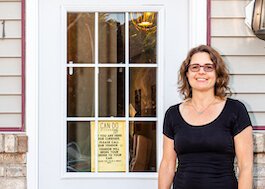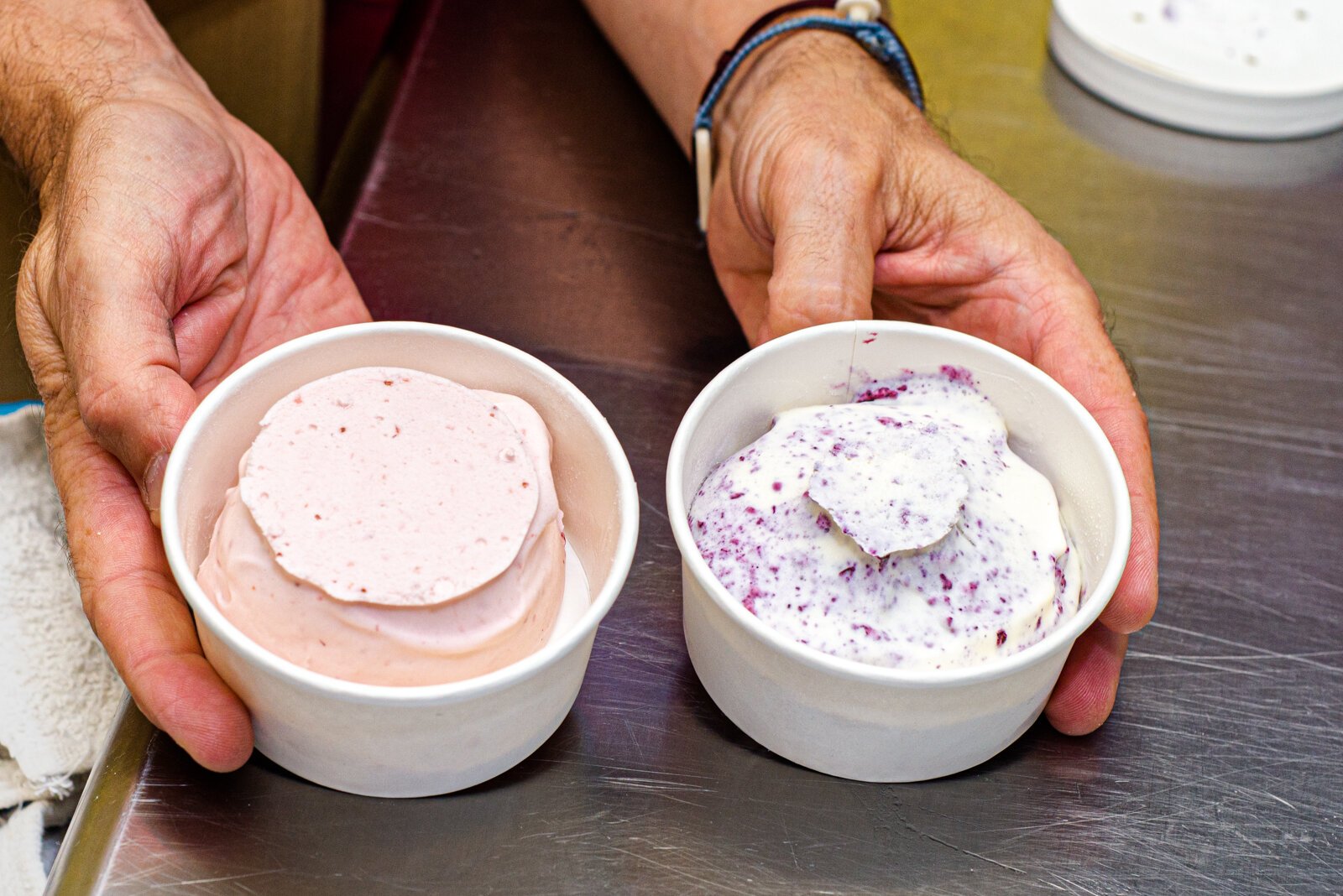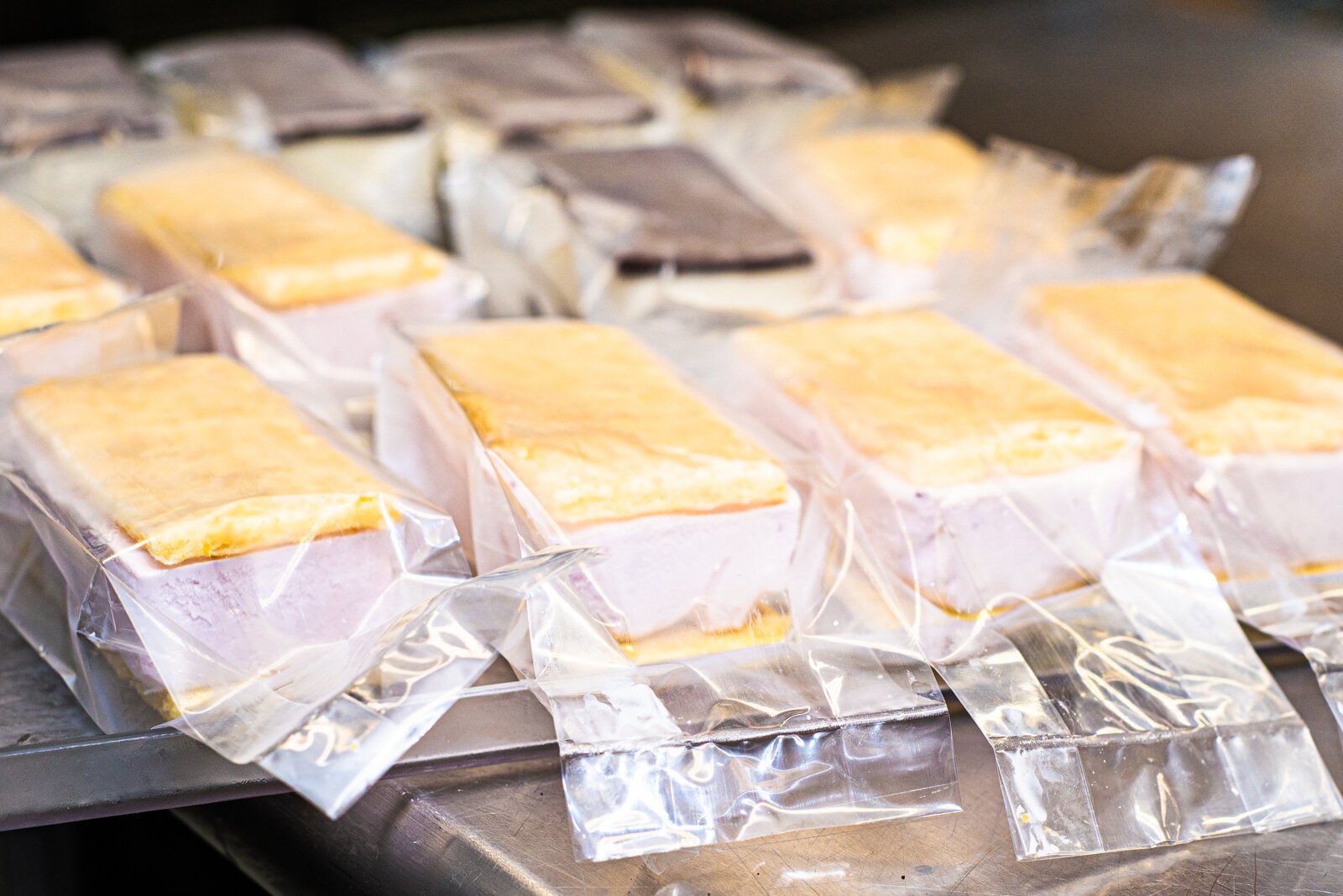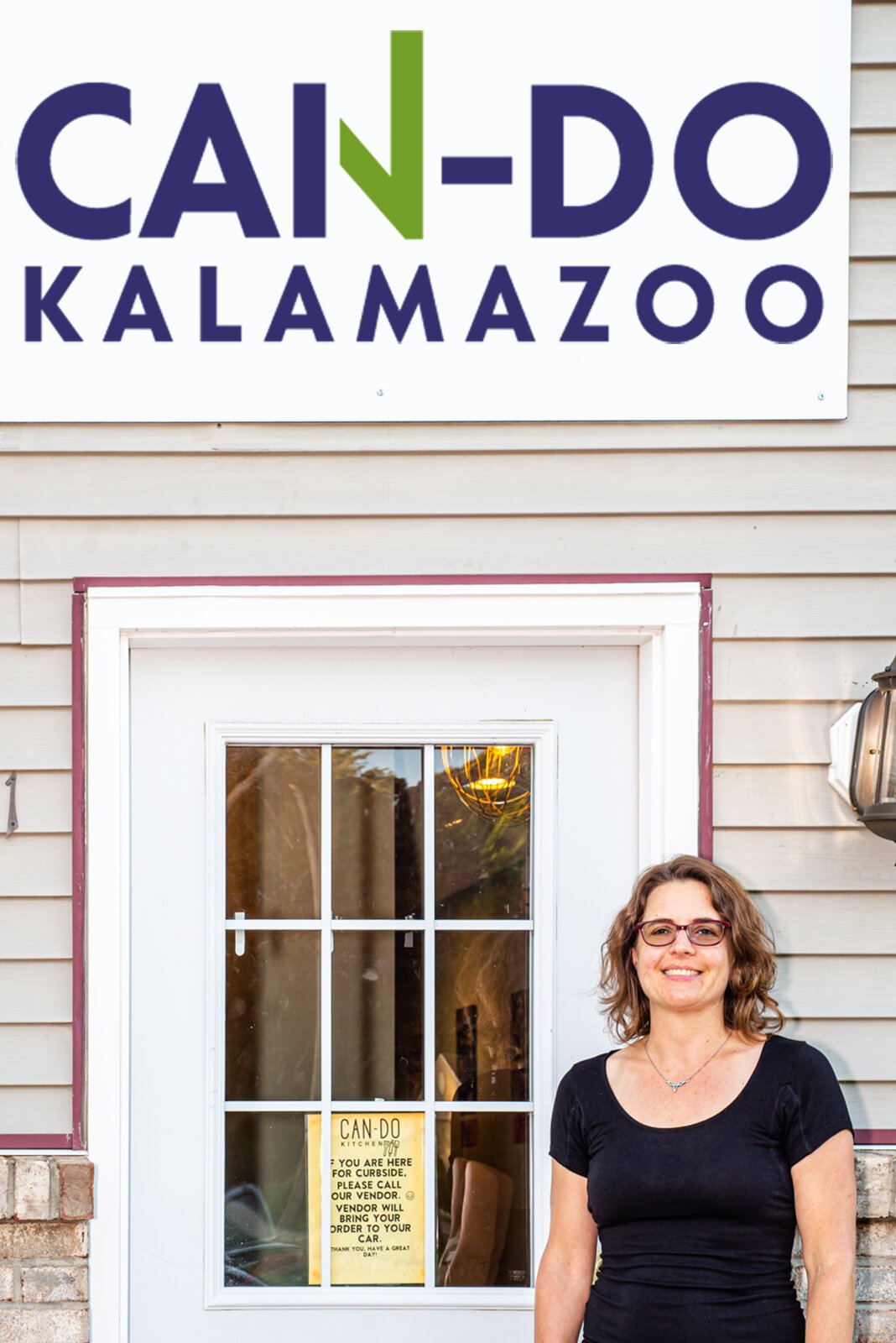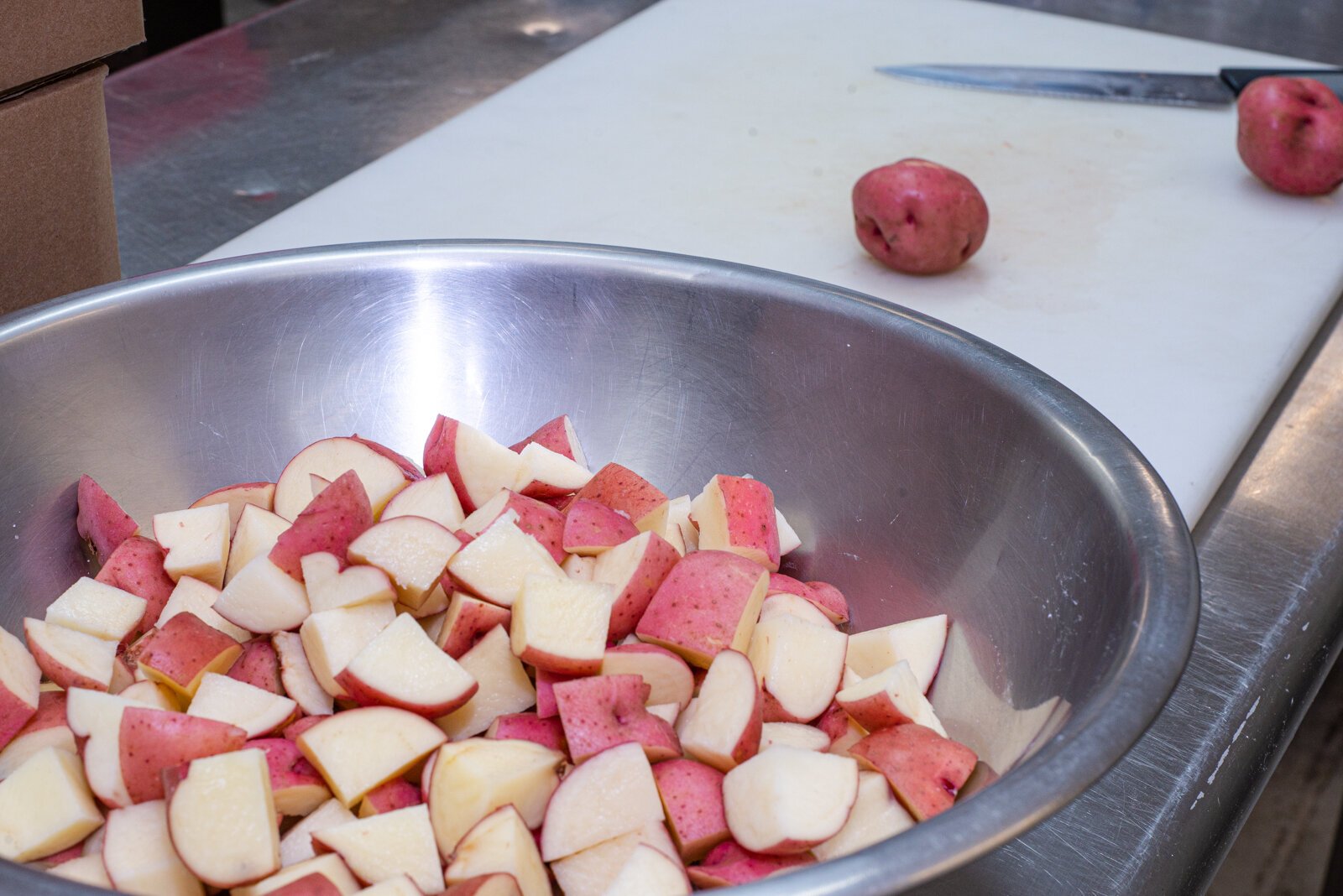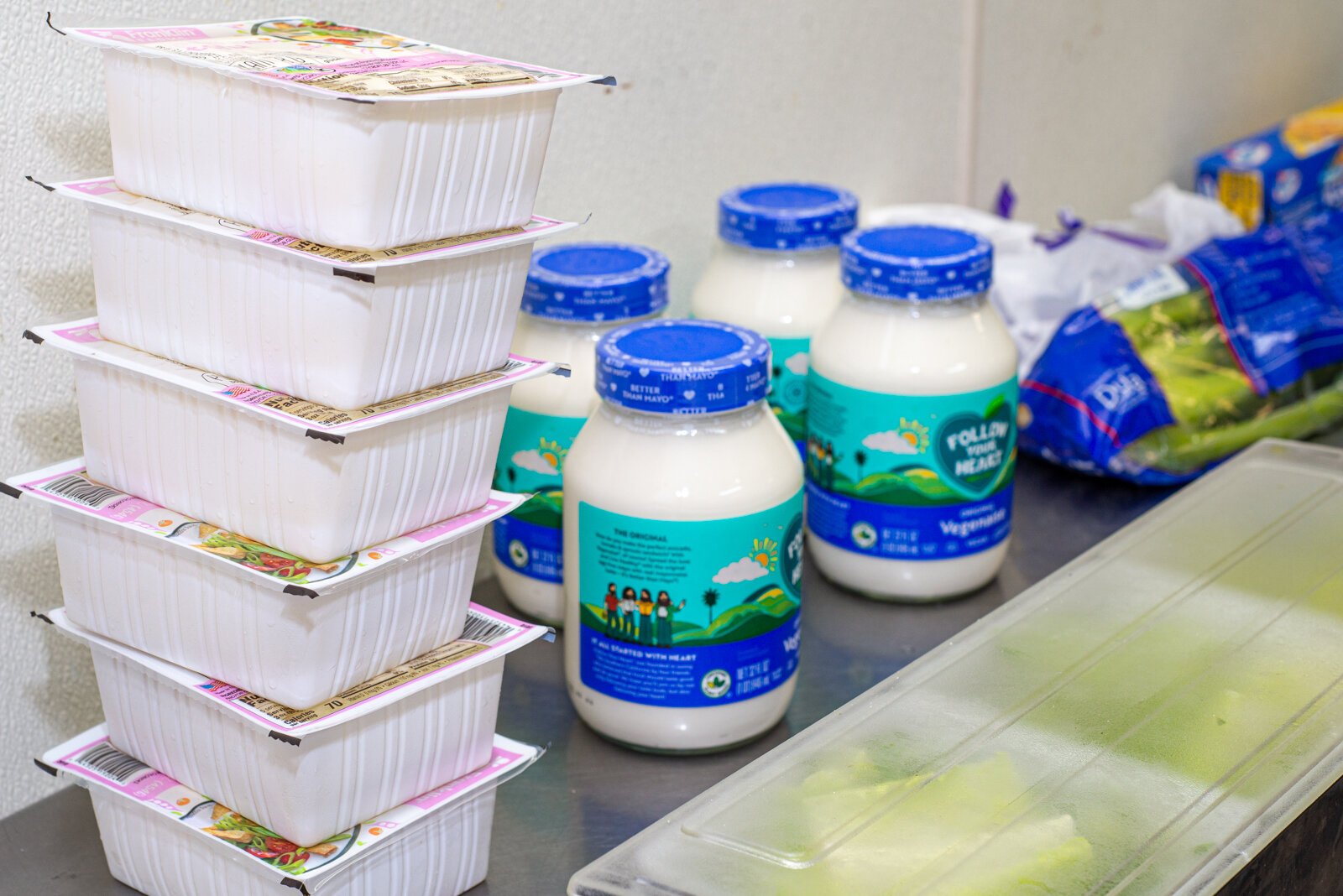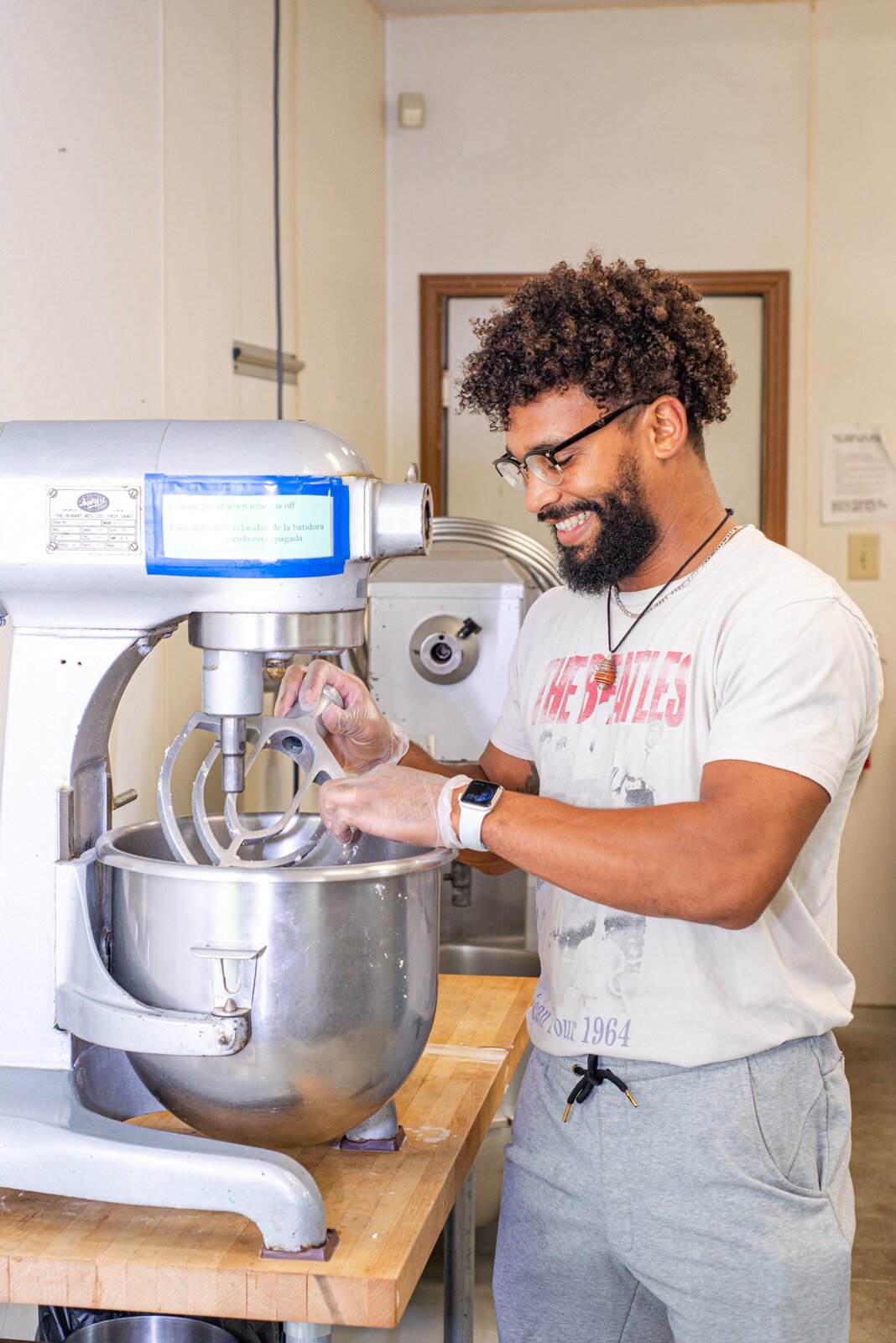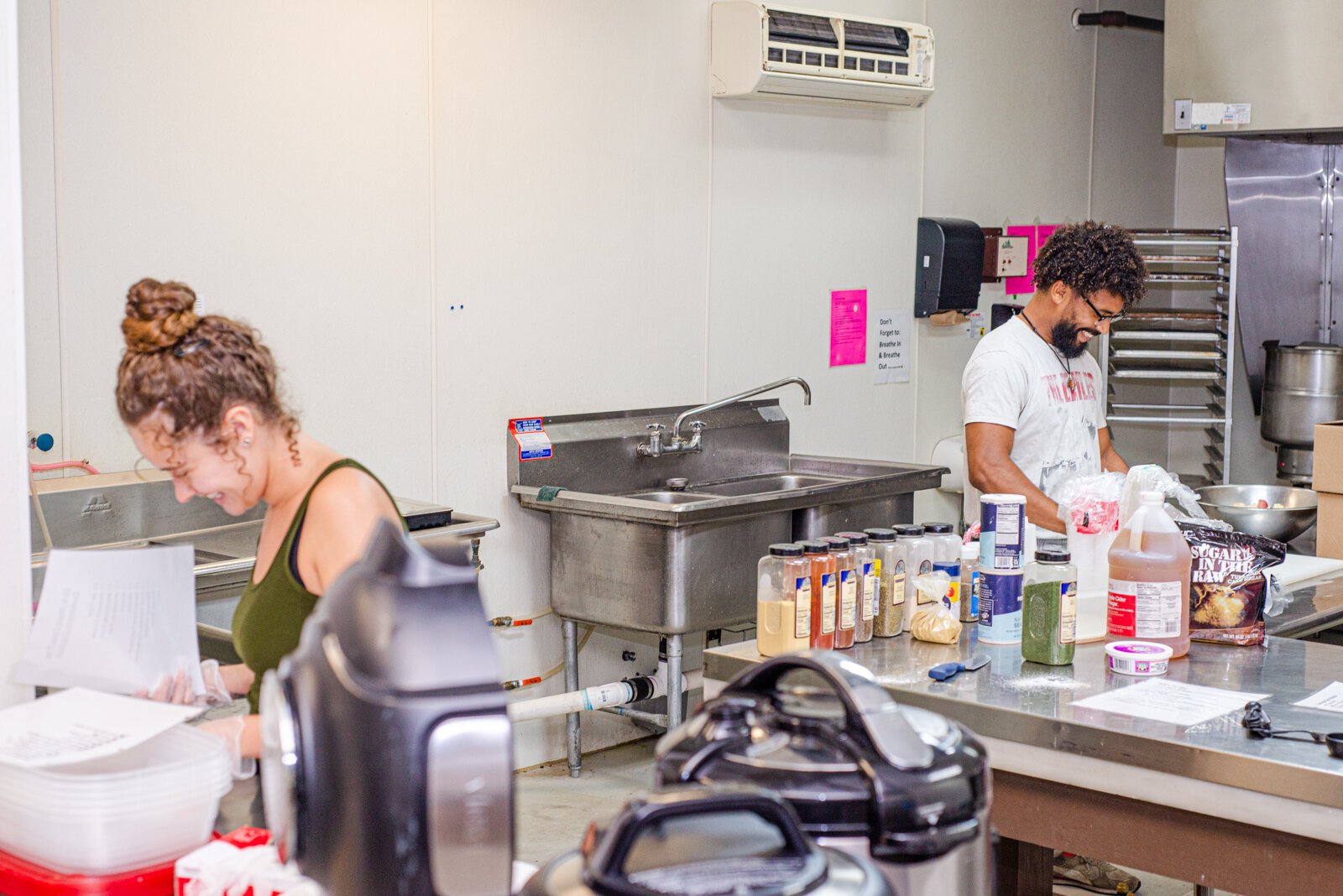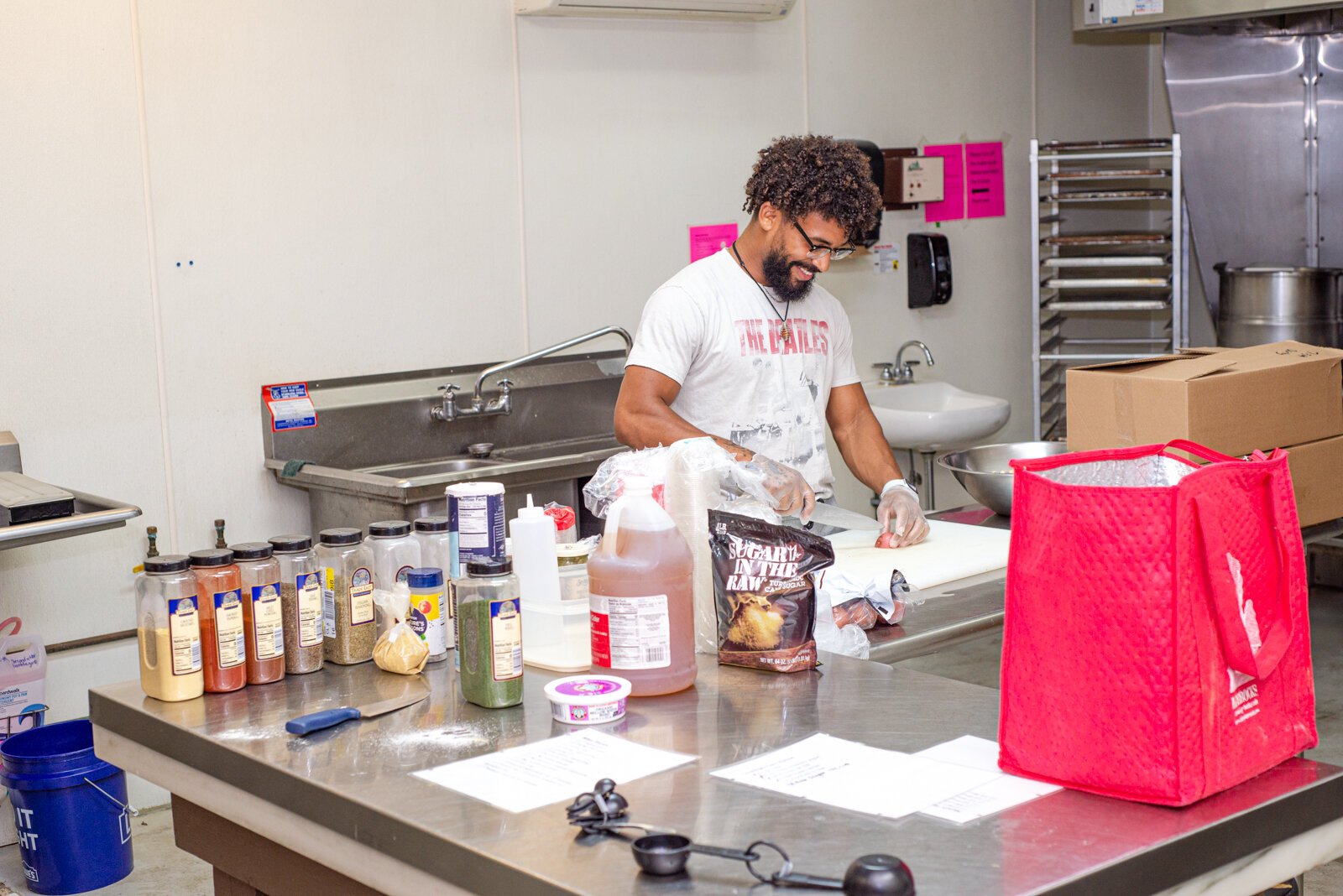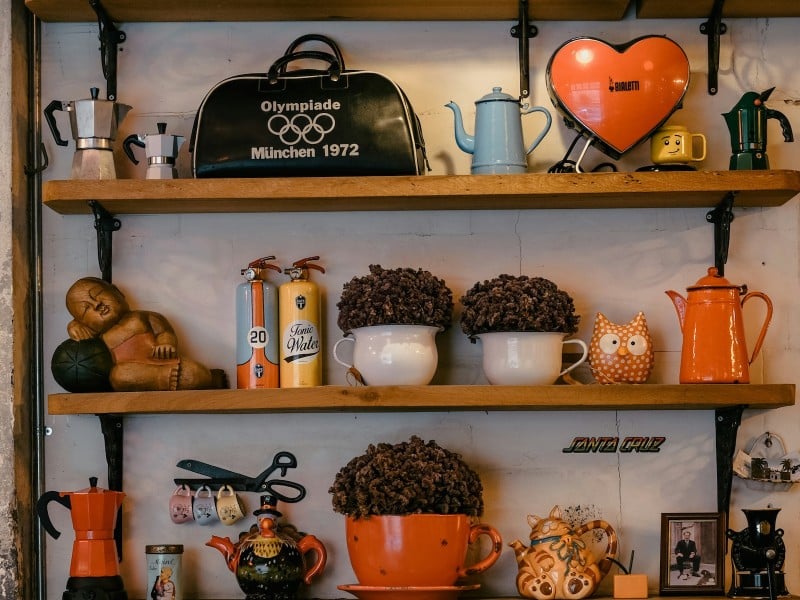Editor’s note: This story is part of Southwest Michigan Second Wave’s On the Ground Kalamazoo series.
Can-Do Kalamazoo is getting it done.
The nonprofit organization that started 14 years ago as an incubator for food-based businesses is now focused on growing and scaling businesses of all kinds. And it is set to expand into a new location in 2023.
“Things are going good,” says Lucy Dilley, executive director of the hub for start-up businesses. “We’re fully Can-Do Kalamazoo now. We launched that brand in June.”
Dilley founded the collaborative enterprise for new businesses in 2008 as Can-Do-Kitchen, centered on a shared-used commercial kitchen, basic business training, and helping people take advantage of opportunities to do cooking and catering work. Those they have helped included people selling packaged foods and beverages, and operators of food trucks and carts.
The schedule for those who rent the incubator’s commercial kitchen is all but full, as are slots for those wanting to use its storage space.
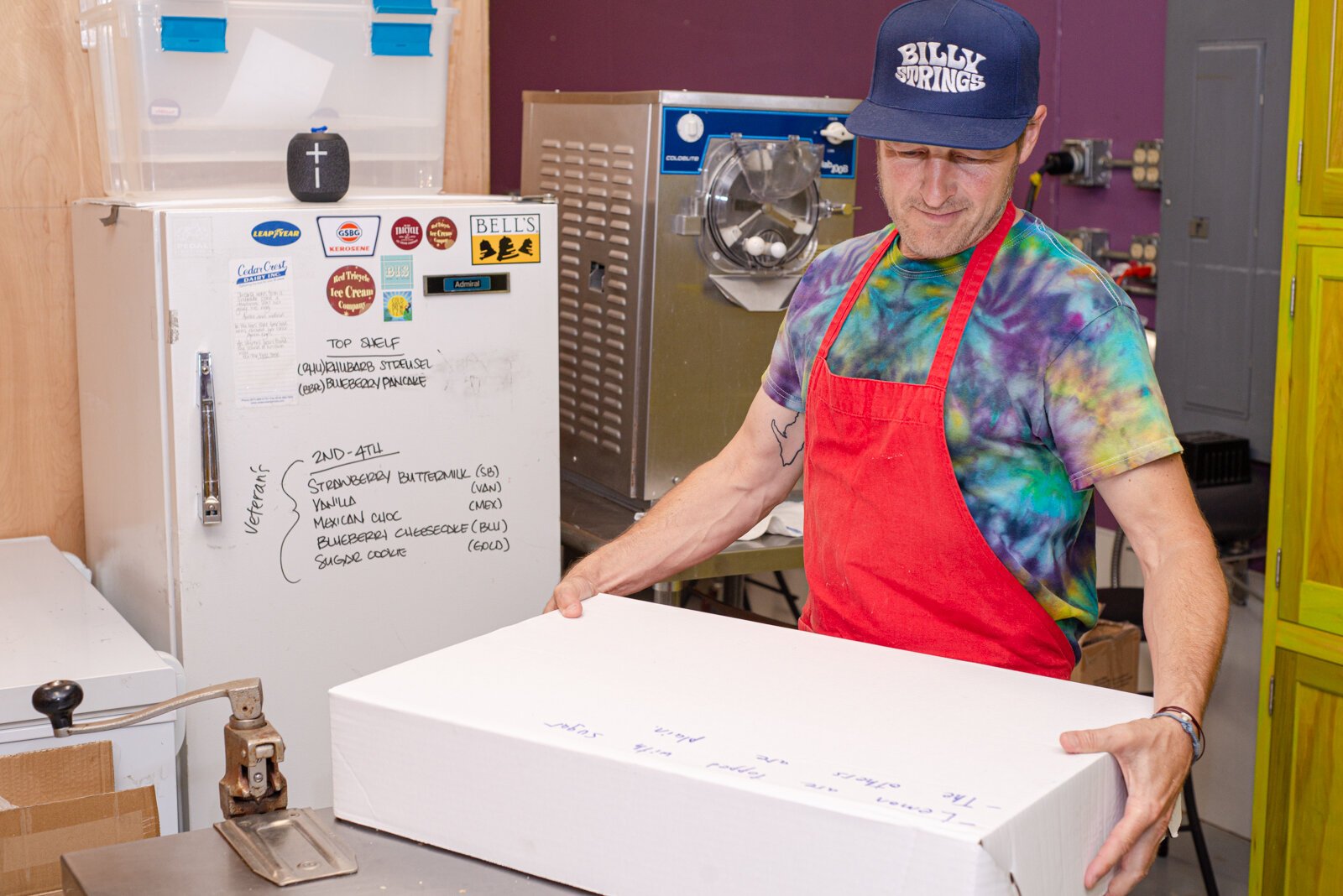
“We need more cooking station capacity,” Dilley says. “Right now we only have one station that has ovens and things like that. There’s a bottleneck. So we knew we needed to create a space that had two to three cooking stations and then multiple prep stations.”
She says the majority of Can-Do users are still food-based entrepreneurs.
“We do have a few non-food-based folks that attended our Can-Do Camp program in the spring,” she says, “There were a couple of service-based businesses that were with us. And we’ve had some health- and beauty-product people reaching out to us and I anticipate — since there’s a lot of programming going on through the city (of Kalamazoo) and Room 35 with contracting business models – that we’ll see more of that happening.”
Dilley says people are now referring to the organization by its new name, Can-Do Kalamazoo “and they understand that we’re the same organization but just growing and doing work on a bigger scope. Now we are working on really creating that pathway so anyone of any business model can come to us and we’re going to get them on that road and make those connections for them.”
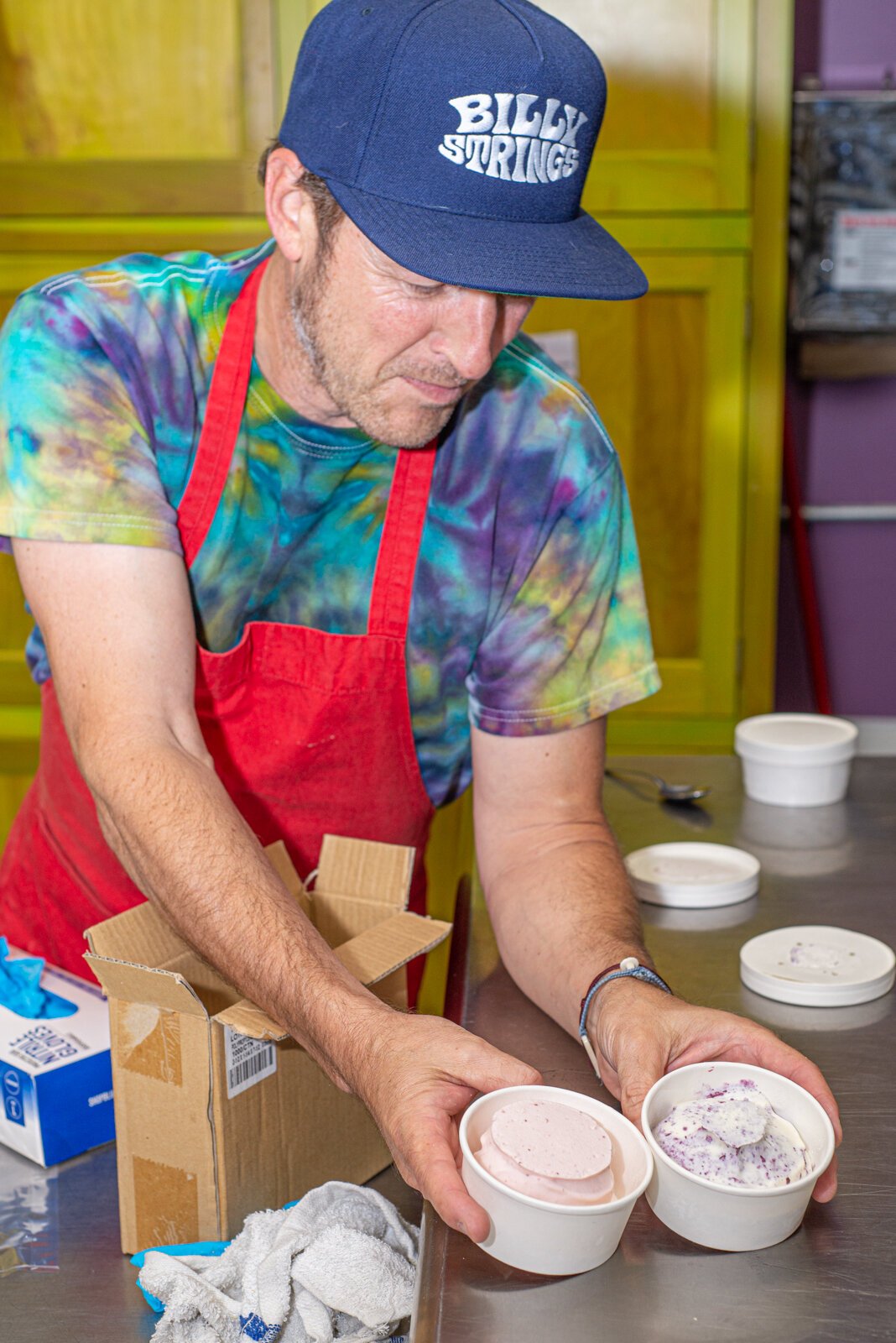
The organization continues at its 6-year-old location at 3501 Lake Street but it is working to develop a new site at 519 S. Park St., next door to the Walnut & Park Café. It plans to renovate about 11,000 square feet of space inside a 20,000-square-foot building owned by KPEP, the county’s reset program for adult offenders coming back into the community. The café is staffed by individuals involved in KPEP’s culinary and hospitality program.
Along with a 4,100-square-foot commercial kitchen (up from the 1,800-square-foot kitchen on Lake Street), the new location will include an open concept co-working space for all entrepreneurs, meeting rooms, a classroom, a multi-purpose space, and office space.
“We are building out our capacity right now,” Dilly says. “It’s taking a little bit of time.”
On Aug. 3, the organization met the goal of its 2-year-old “Opening New Doors” capital campaign – some $650,000. The bulk of the donations comes from the community, nearly $51,000 was raised via the Patronicity crowd-funding platform, and a matching grant of $50,000 was awarded by the Michigan Economic Development Corp.
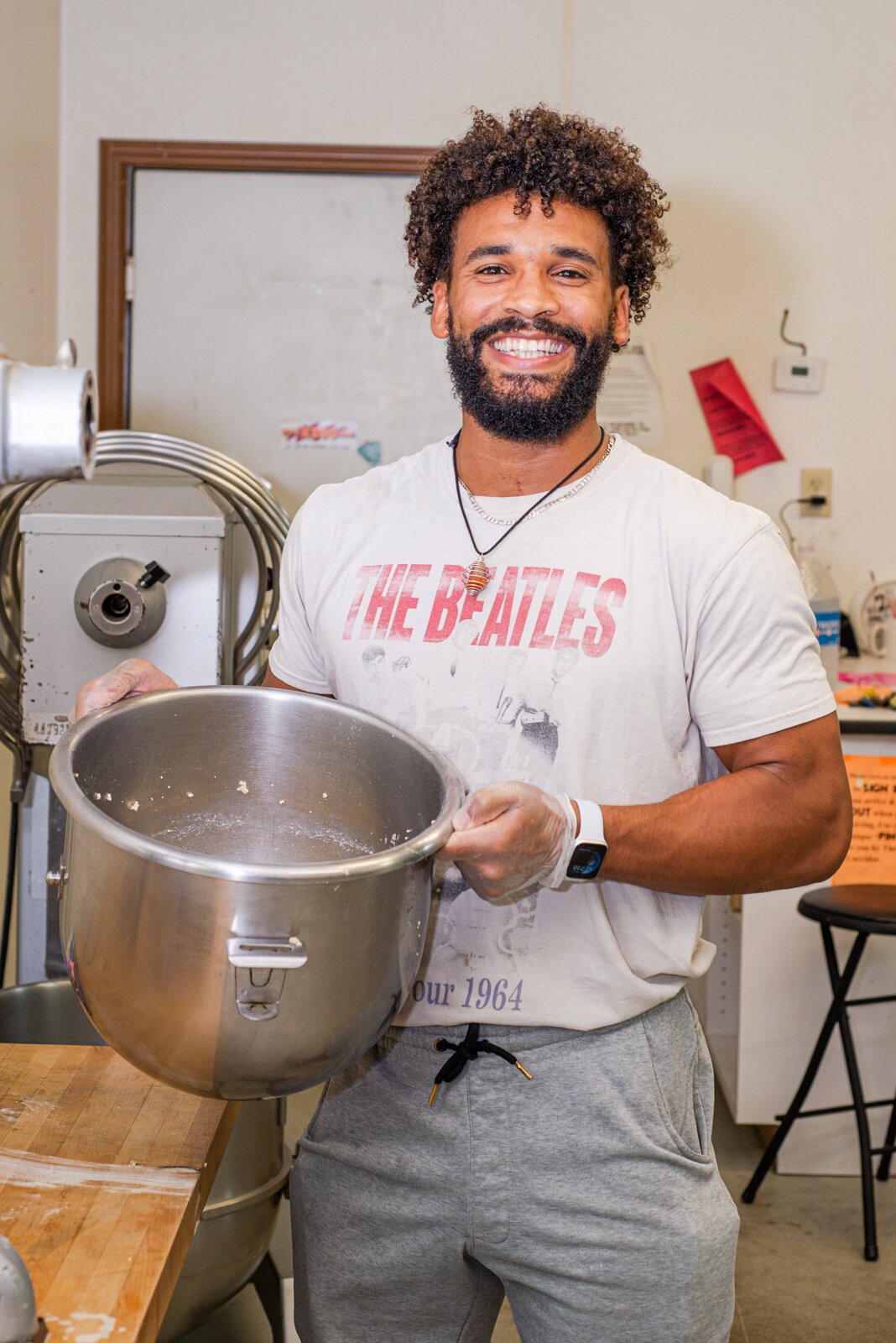
Some individual donors were from out of state, Dilley says. “But mostly it’s our supporters here in town. Donors who are new to us or who have supported us for years. It’s a good mixture of support.”
The money will allow Can-Do Kalamazoo to renovate the kitchen space it wants in the new location and adjacent multi-purpose spaces. Dilley says the expansion effort will need additional financial support, however, because construction costs have risen since the capital campaign was launched and the organization will use more space than it originally planned.
Dilley expects the bulk of renovation work to begin in late September or early October and hopes to be able to occupy the new space before the middle of next year. But the existence of Can-Do Kalamazoo is already appreciated.
“It provides accessibility, for the most part,” ice cream maker Ken Quayle says of Can-Do Kalamazoo and the way it provides production space, tools, and people. “And it’s some flexibility, without being tied down to higher retail or commercial rent.”
A resource specialist for a senior care provider in Kalamazoo and a former grocery manager for the People’s Food Co-op, Quayle is now owner of Red Tricycle Ice Cream Co. It uses an ice cream base from a Grand Rapids dairy and adds flavorings and ingredients grown or produced in Michigan to make in small batches its own premium ice creams that boast 16-percent butter fat. It sells them in cups and in ice cream sandwiches from either of two vintage, three-wheel bicycles. Each is equipped with a freezer.
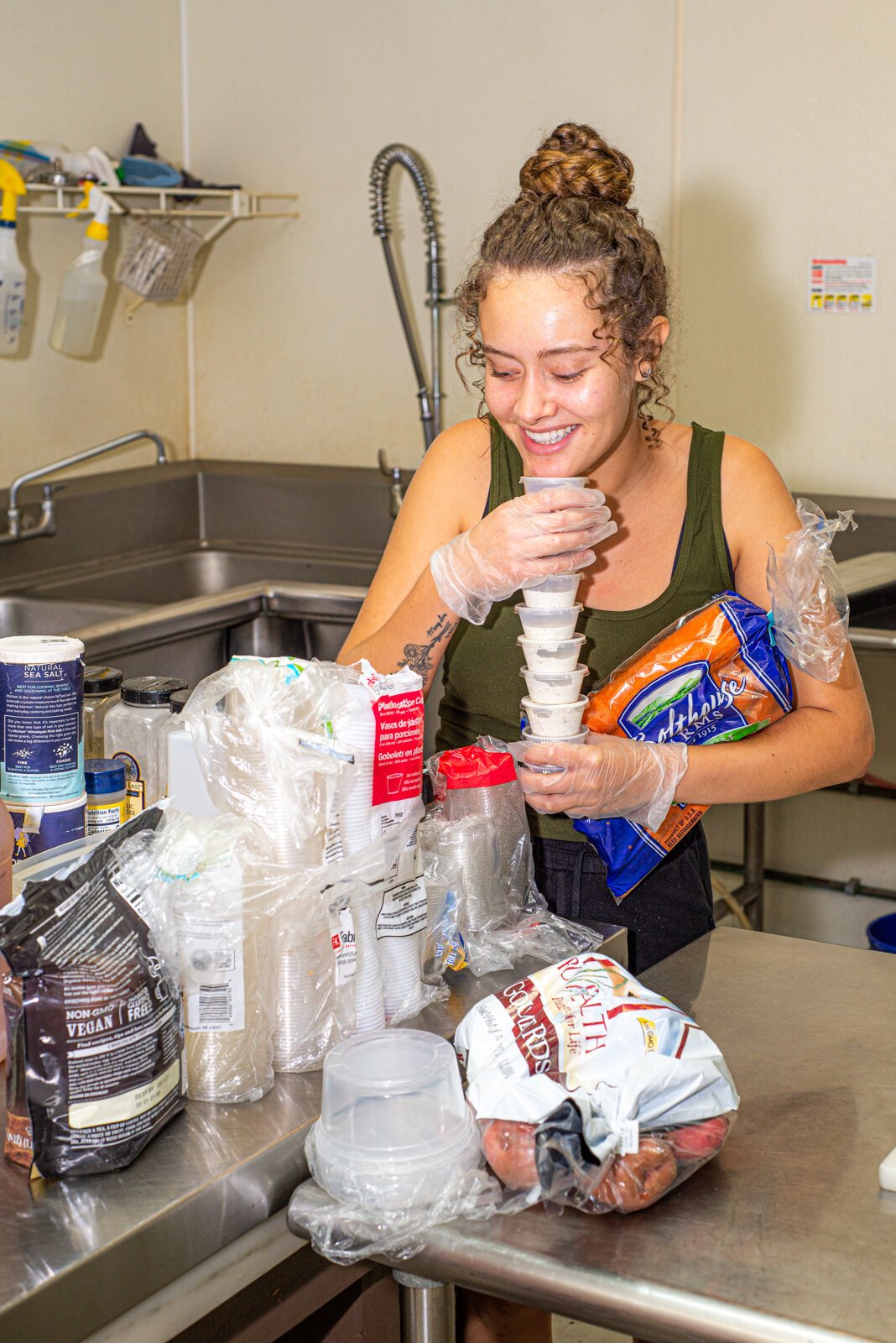
The company gets its name from the red frames of the 1950s and 1970s-era tricycles Quayle uses.
“We do cups and ice cream sandwiches,” he says. “Judy Sarkozy (of Sarkozy Bakery in Kalamazoo) makes ice cream cookies for our ice cream sandwiches.”
Quayle, 53, is a Marquette native who relocated to Kalamazoo in 2010 and has been trying to grow the business as a part-time operation for the past six years. He sells regularly on Saturdays at the Kalamazoo Farmers Market and caters private events, including corporate gatherings, weddings, and birthday parties.
For the past two years, Can-Do Kalamazoo has provided the company with licensed commercial kitchen space and the tools it needs to cut costs.
“I have a specific tool, an ice cream maker,” Quayle says. “But if you’re baking something, you can rent space at the Can-Do Kalamazoo, and many of the tools that you need are already there. I think depending on what your product is and what you’re going into, it can extremely limit your start-up costs” if you don’t have a resource like Can-Do Kalamazoo.
Vegan foods maker Derick Waters says, “The commercial kitchen space has the equipment and space, and having a physical location is important,” says. But he says the introductory business course offered by Can-Do Kalamazoo is what helped him explore the idea of going into business and actually start up his business a few months ago.
“Their 16-week program (The Can-Do Camp) is the reason I opened my business,” says the 28-year-old Kalamazoo man. “Every single week I know this is what I should be doing. It’s amazing. It made it so easy.”
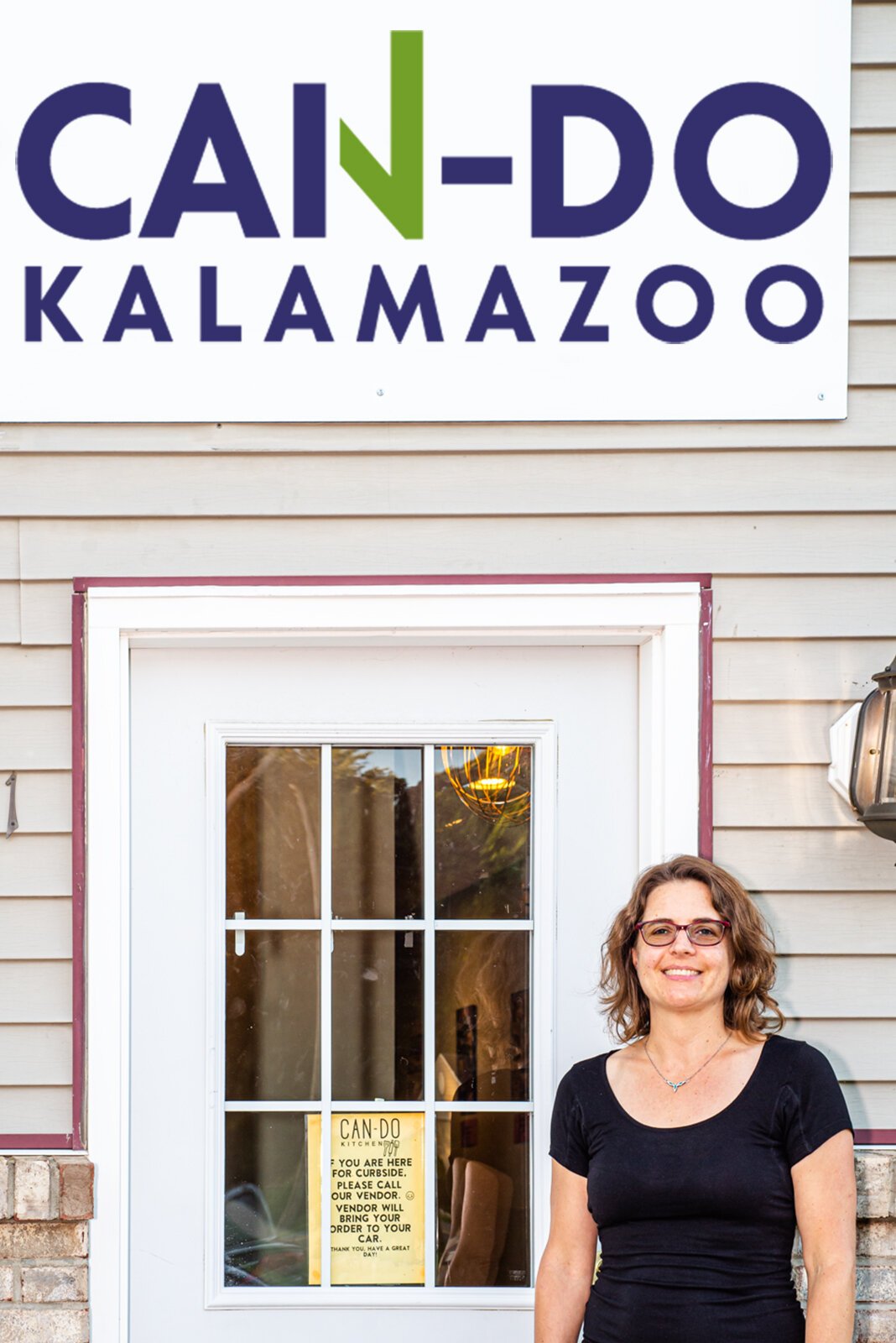
Waters obtained an associate’s degree in general education from Kellogg Community College and planned to pursue a degree in dietetics from Western Michigan University when he began looking for commercial kitchen space to do vegan videos.
He had been working as a forklift operator at a retail product distribution warehouse in Galesburg but admits he didn’t like it much. He began doing the paperwork to organize his business in March and started selling vegan foods in June at the Kalamazoo Farmers Market.
“It’s vegan food,” he says. “I have ‘not-chicken’ wraps and ‘not-chicken sandwiches.’ I use oyster mushrooms to replicate the mouth-feel and taste of a chicken sandwich or a chicken wrap. I take oyster mushrooms and I season them and marinate them overnight. Then I make a batter, deep-fry them (in vegetable oil) and serve them up with a special sauce on a bun or in a wrap.”
He also serves garlic parm bites, which replicate boneless chicken wings.
“I call it clean comfort food,” Waters says of his plant-based, ready-to-eat fare. He says the name “The Dirty Vegan,” is intended to help change the idea that vegan food is all salads, or that it is boring and proper.
Waters creates his own recipes and sells them at food vending events as well as at the Kalamazoo Farmers Market. He also takes orders by telephone (269-391-4291) for curb-side food pickup from the Can-Do Kalamazoo from 4 to 9 p.m. on Fridays and Sundays.
At locations, his girlfriend, Nina Martinez, takes orders, does food preparation, and creates a chalkboard menu for customers. That help, along with avoiding the cost of establishing his own commercial kitchen, allows him to keep his costs low.
But he says, “Eventually I want to have brick and mortar (a permanent location). So I want to have my own spot.”
Quayle says, he and his partner Rachel Rang are also definitely looking to expand. “We are about as busy as we can be without doing any advertising right now,” he says.

